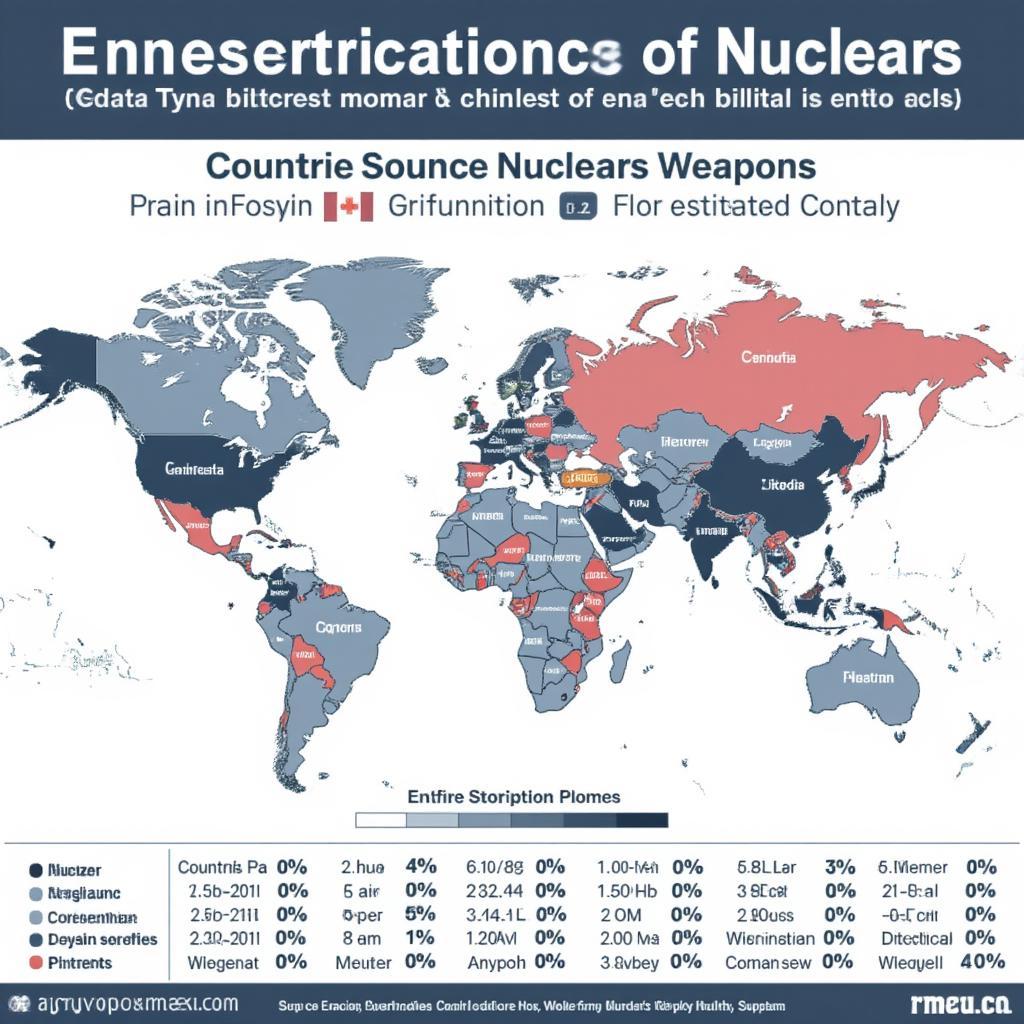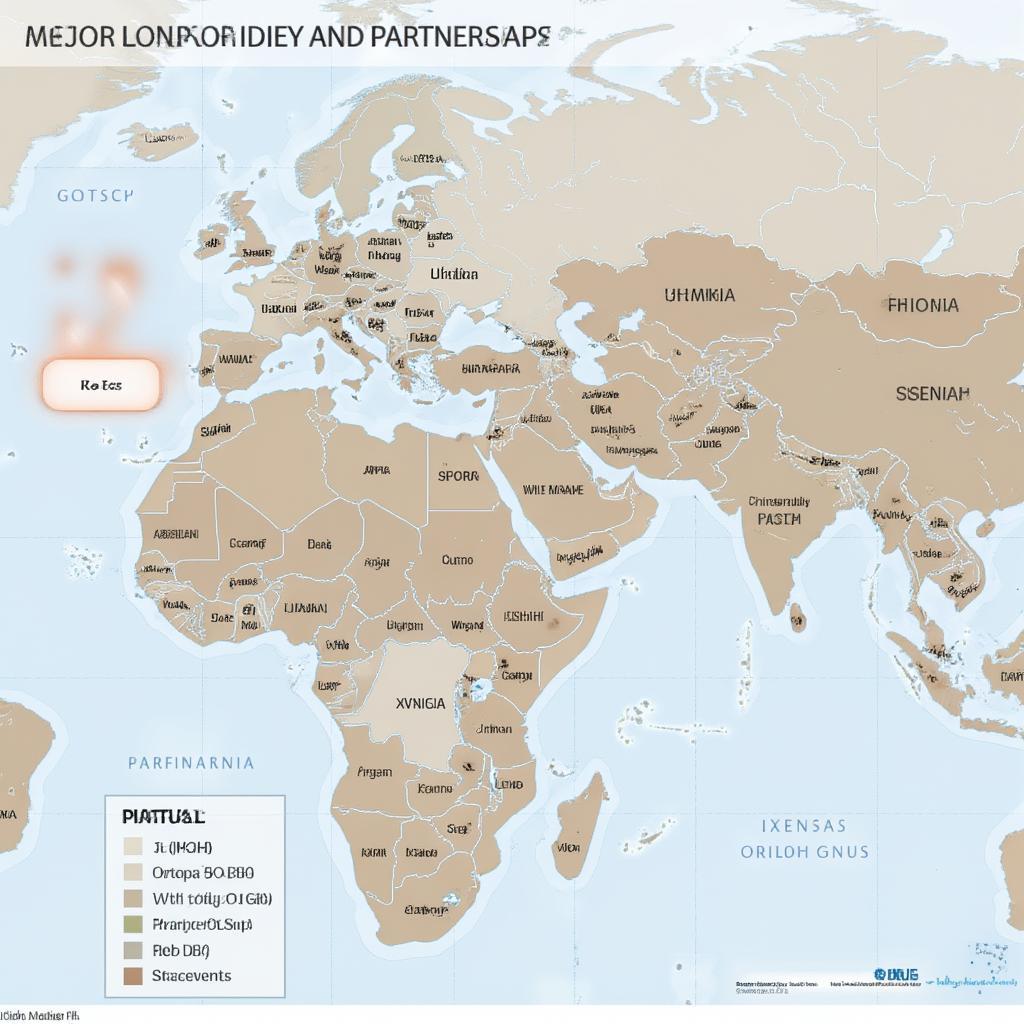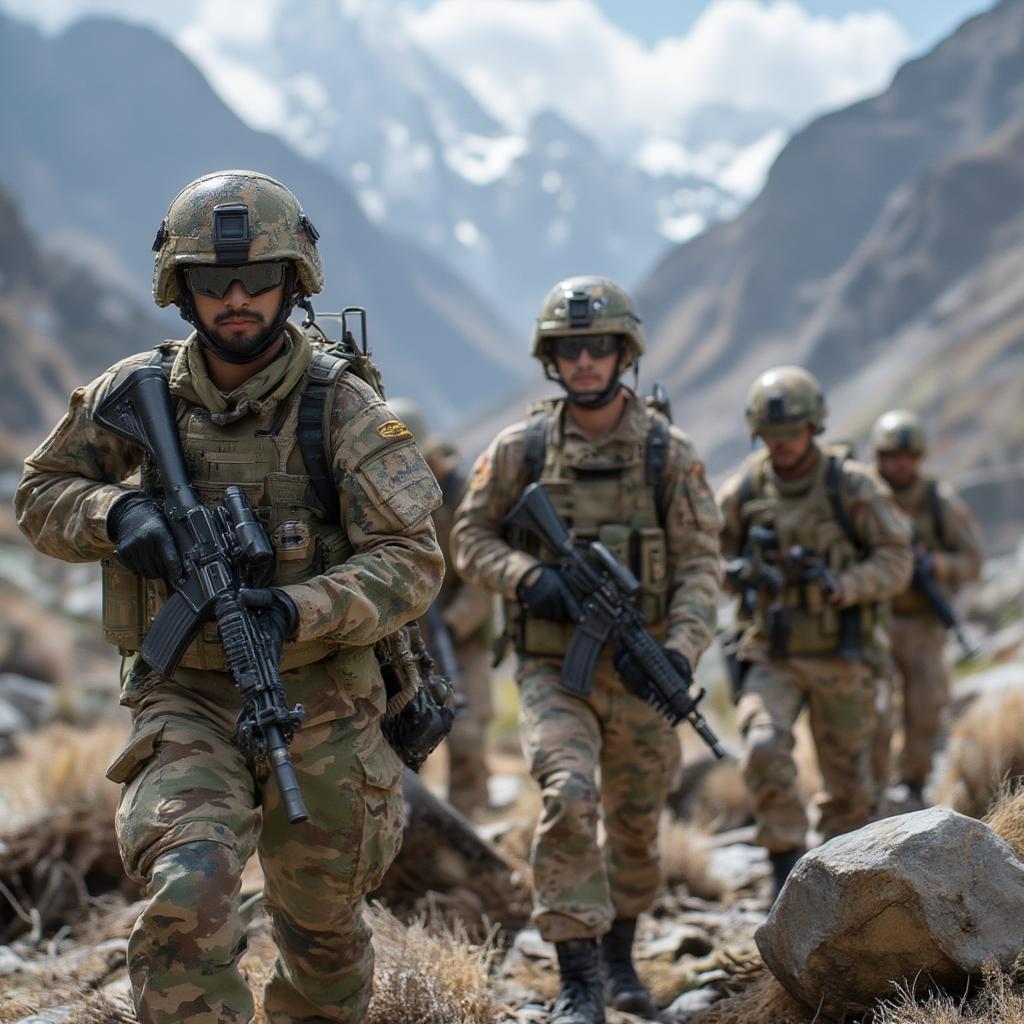Army Country Ranking: A Comprehensive Guide

The global landscape of military power is constantly shifting, making “Army Country Ranking” a topic of significant interest. This article delves into the complexities of assessing military strength, exploring various factors beyond mere troop numbers and providing a nuanced understanding of global military power dynamics.
What Factors Determine Army Country Ranking?
Determining a definitive army country ranking is challenging due to the multifaceted nature of military power. While the sheer size of an army plays a role, several other factors contribute to a nation’s overall military capability. These include:
- Technological Advancement: Modern warfare is heavily reliant on technology. A nation’s investment in research and development, as well as its access to cutting-edge weaponry, significantly impacts its military strength.
- Economic Stability: A robust economy is essential for funding military operations, procuring equipment, and maintaining a well-trained force.
- Geopolitical Factors: A country’s geographical location, alliances, and political influence can significantly affect its military standing.
- Training and Personnel: The quality of training, morale, and leadership within the armed forces are crucial determinants of their effectiveness.
- Logistics and Infrastructure: The ability to effectively deploy and sustain troops, along with the necessary infrastructure, is vital for military success.
Different Approaches to Army Country Ranking
Various organizations and think tanks employ different methodologies to assess and rank military strength. Some focus on quantitative data like troop numbers and equipment, while others incorporate qualitative assessments of factors like training and leadership. This leads to variations in rankings, highlighting the subjective nature of the process. Understanding these different approaches is crucial for interpreting army country rankings effectively.
Global Firepower Index
The Global Firepower Index is a widely cited ranking that considers over 50 factors to assess military strength. It assigns a PowerIndex score to each country, with a lower score indicating greater power. While providing a comprehensive overview, it has been criticized for its emphasis on quantity over quality in certain areas.
Credit Suisse Military Strength Index
This index focuses on a nation’s potential war-making capability, considering factors like active personnel, tanks, aircraft, and aircraft carriers. It provides a different perspective compared to the Global Firepower Index, emphasizing hardware over other aspects of military strength.
The Limitations of Army Country Ranking
While army country rankings offer a snapshot of global military power, it’s essential to acknowledge their limitations. These rankings often oversimplify a complex reality, failing to capture the nuances of military strength. For instance, they may not fully account for factors like:
- Asymmetric Warfare: Non-state actors and unconventional warfare tactics can pose significant challenges to even the most powerful militaries.
- Cyber Warfare: The increasing importance of cyber warfare adds another layer of complexity to assessing military strength, often not adequately reflected in traditional rankings.
- Nuclear Capabilities: The presence of nuclear weapons dramatically alters the balance of power, but their inclusion in rankings is often debated due to the unique nature of nuclear deterrence.
“Focusing solely on quantifiable metrics can lead to a misleading picture of true military capability,” says Dr. Amelia Carter, a military strategist at the Institute for Strategic Studies. “Qualitative factors, such as leadership, morale, and adaptability, are equally crucial, especially in the face of evolving threats.”
The Future of Army Country Ranking
The ongoing evolution of warfare, driven by technological advancements and changing geopolitical dynamics, necessitates a continuous reassessment of how we measure military strength. Future army country rankings will likely incorporate new metrics related to areas like:
- Artificial Intelligence: The increasing integration of AI in military operations will require new ways to assess its impact on military power.
- Space-Based Assets: The growing importance of space as a military domain will necessitate the inclusion of space-based assets in future rankings.
- Information Warfare: The ability to control and manipulate information will become increasingly critical in future conflicts, requiring new metrics to assess a nation’s capabilities in this domain.
“The future of warfare will be characterized by increasing complexity and interconnectedness,” states General Michael Davies (Ret.), a former NATO commander. “Army country rankings will need to adapt to reflect these changes to provide a more accurate and nuanced understanding of global military power.”

Conclusion
Army country ranking provides a valuable framework for understanding global military power. However, it is crucial to approach these rankings with a critical eye, recognizing their inherent limitations and the complex interplay of factors that contribute to a nation’s true military strength. As technology and geopolitical dynamics continue to evolve, the methodologies for assessing military power will also need to adapt to provide a more comprehensive and nuanced understanding of the global military landscape. By considering the various factors discussed in this article, we can gain a more informed perspective on the ever-changing dynamics of army country ranking.




